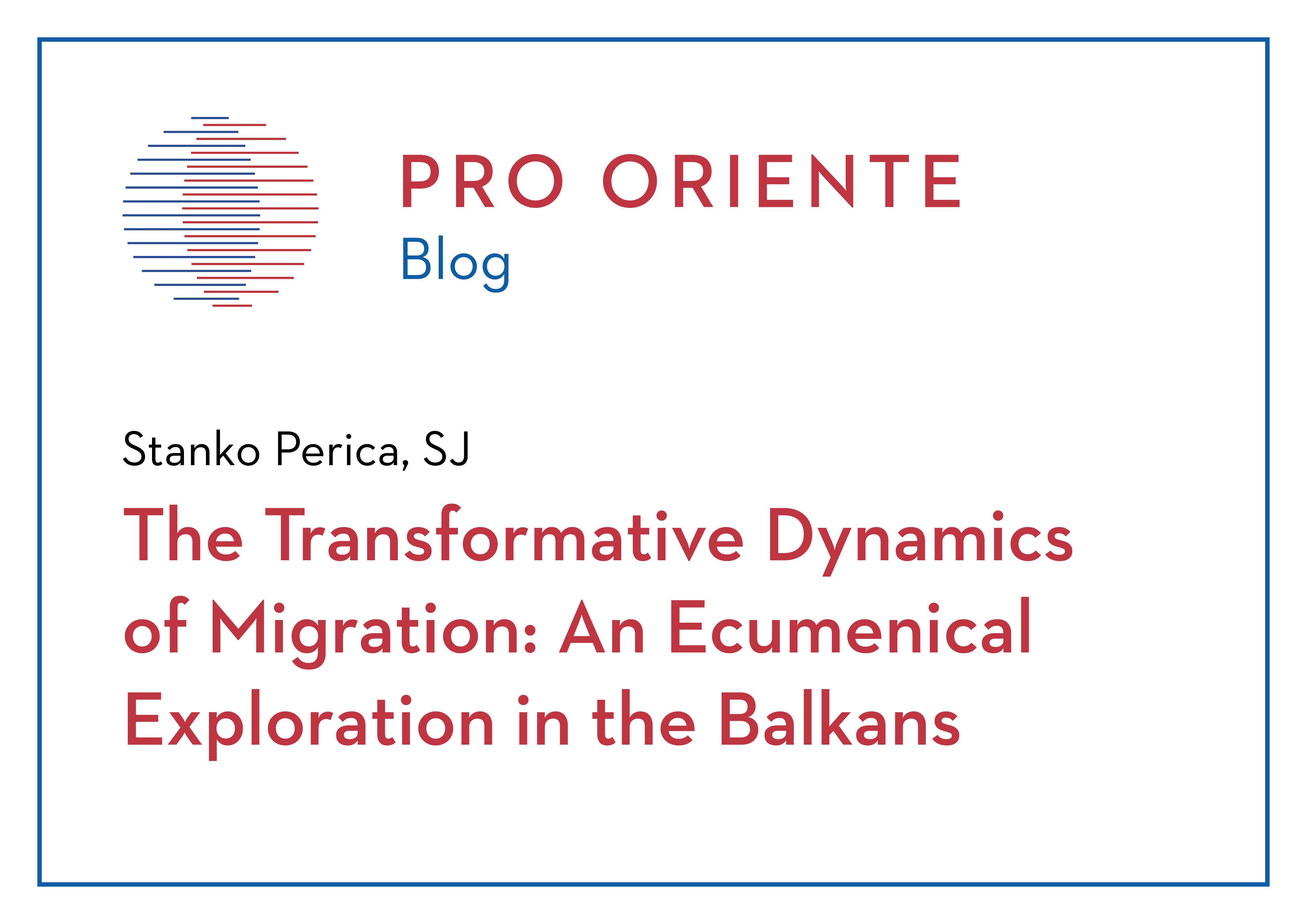The Transformative Dynamics of Migration: An Ecumenical Exploration in the Balkans
02. February 2024
Thema: Healing of Wounded Memories

1. Surprising Allies
The year 2015 marked a watershed moment in the Balkans with the unprecedented arrival of over one million asylum seekers in Europe, the highest since World War II. Predominantly comprising Syrians, this influx also included significant numbers from Afghanistan, Pakistan, Iraq, and even the Balkans itself, particularly Albania and Kosovo. The subsequent implementation of the EU-Turkey deal in March 2016 led to a substantial decline in migrant arrivals in Greece and the broader Balkans. However, migration persisted, now requiring individuals to navigate numerous obstacles while crossing Balkan borders. In the following years, the Balkans have witnessed immigration of two additional large groups. The first are Ukrainian refugees, following the commencement of the conflict in Ukraine (as of late 2023, the largest concentration within the Balkans is observed in Croatia, numbering approximately 20,000 individuals). A noteworthy surge has also been seen in the population of foreign workers. The increase is particularly pronounced among workers originating from South-Eastern Asia, specifically from countries such as India, Sri Lanka, Nepal, and the Philippines.
Already the events of 2015 prompted an effective response from various Christian denominations in the Balkans. Catholics, Orthodox, and Protestants emerged as surprising allies, actively engaging in humanitarian efforts. Church volunteers and staff from faith based NGOs provided assistance in refugee camps, offering respite and shelter. Beyond immediate aid, collaborative projects unfolded in the following years. We in Jesuit Refugee Service have engaged in few of them. In Bihać, the town that turned into a hot spot for migrants in Bosnia, we started collaboration with the local Orthodox parish priest, engaging Orthodox faithful in outreach initiatives that involved distributing humanitarian aid to migrants hiding in the woods. In Serbia, Orthodox volunteers participated in supporting unaccompanied minors in our integration house in Belgrade. In Croatia, in response to the onset of the Ukrainian refugee crisis, we have initiated a Croatian language course specifically tailored for Ukrainians, conducted within the premises of the Serbian Orthodox Church in Zagreb.
While seemingly modest, these instances represent rare examples of Christians from different denominations acting collectively. Migrants, predominantly Muslim, and more recently, Orthodox Ukrainian refugees, unexpectedly became the driving force behind ecumenical collaboration in the Balkans, echoing Ivo Andrić's sentiment that "Nothing connects people more than a shared and happily survived accident."
2. Ecclesiastical Relevance Amid Political Turmoil
The collision of theology and politics is evident in the Balkans, especially concerning the politicization of migration. Right-wing politicians, echoing sentiments increasingly prevalent in Europe, have adopted anti-migrant rhetoric, contributing to the rise of populism. A recent quote from a Croatian right-wing politician exemplifies this perspective: "It’s a crazy idea - that you should serve and welcome someone who breaks into your house through the window."
In this context, Christian churches in the Balkans navigate the delicate intersection of theology and politics. Christian organizations stand out as resilient voices against populist narratives. Despite challenges posed by populist ideologies, these organizations have maintained a steadfast commitment to aiding migrants and refugees. By doing so, they underscore the enduring relevance of Christianity in the face of contemporary political narratives.
3. Deepening Empathy Through Enhanced Listening
Engaging with migrants compels Christian communities to transcend self-referential attitudes and confronts the temptation of focusing on climbing social and ecclesiastical hierarchies. This temptation is often highlighted by Pope Francis, who calls it clericalism and considers it one of the main diseases of the contemporary Church. Due to a tendency toward seclusion, clericalism is also a hindrance to ecumenism. Interactions with marginalized populations prompt a reevaluation of priorities and challenge prevailing mentality that results in clericalism.
Encounters with individuals facing displacement become catalysts for broadening Church’s listening capacities. In that way migrants serve as agents of change, compelling a deeper understanding of the human experience. By sharing stories of struggle, resilience, and faith, they challenge prevailing stereotypes and contribute to a more nuanced understanding of the complexities surrounding migration.
In the Balkans, where the scars of the 1990s wars still linger, the presence of migrants challenges ingrained separatist tendencies. Migrants demonstrate that the world extends beyond homogeneous communities, fostering a broader perspective. Moreover, they highlight the enduring value of Christian faith, emphasizing the commitment to protect human dignity and walk in solidarity with those marginalized by society.
Conclusion
This paper offered a short exploration of the transformative impact of contemporary migration phenomena on ecumenical dynamics in the Balkans. It underscores the unifying force of shared adversity, the resilience of Christian communities against populist challenges, and the capacity of migrant encounters to foster a deeper, more empathetic engagement with the diversity of human experiences.



